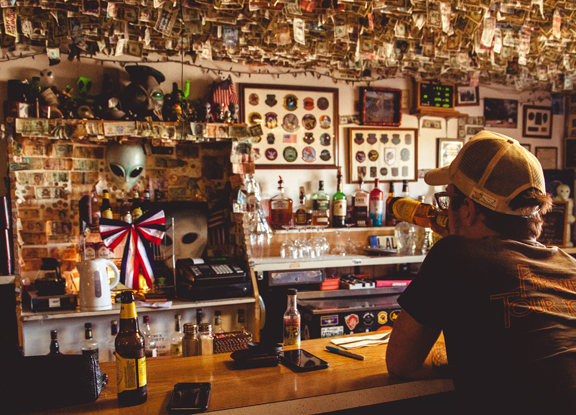Here is a very unique article by guest expert/contributor, Nika Kabiri! She has such a rich background with her JD and a Ph. D. plus her own business. She talks about conspiracy theories..which for the longest time seemed to be wondering about who killed JFK and is the Loch Ness Monster real? What about Sasquatch?
…Unfortunately Life (yes with a capital L) is much more complicated in part because of the internet and also there are lots of benefits.
I hope you enjoy this article. I found Nika Kabiris’s thesis to be quite interesting!
Why People Believe in Conspiracy Theories
–and What To Do About It!
By Nika Kabiri, JD. PhD.
I want to believe in aliens. It would be really cool if they were stopping by to check us out.
For a while in my younger years, I did believe. I believed they were flying over us in their spaceships, snatching a few of us up, and doing experiments on us. And I believed the government was covering it up.
Crazy? Maybe. But don’t worry – I’m not a believer anymore.
But, don’t get excited: I haven’t ruled it out.
These days, conspiracy theories seem different than they were back when people were obsessed with who killed JFK. These days, conspiracy theories seem a bit wilder. They also seem a lot more dangerous.
What makes people believe such crazy stories? Here are three reasons:
First, we all need a reason.
Human beings hate uncertainty. It makes us nervous because we lose control and feel less secure, so when bad things happen that we don’t like, we want to know why. Our brains respond by naturally looking for connections between things, so we can have an answer.
Sometimes, the answer is beyond our reach. Sometimes, things just happen. But our brains don’t like this, so we keep hunting until we find an explanation that seems right – even if it isn’t actually right.
These days, uncertainty is at an all-time high. COVID-19 has thrown us for a loop. Fires, storms, and freezes have disrupted our sense of security. The political environment has been anything but settling. So, it makes sense that we need an explanation. It makes sense that people are looking for answers.
Loch Ness “Monster” Photo courtesy of Wikipedia
Is it really a monster or is it an overgrown eel?
Second, it depends on who you know and what you know first.
If you know nothing about cars, and you go to a mechanic, you’re more likely to take them at their word. You know nothing, and they know something, and something is better than nothing.
If you know nothing about the COVID-19 vaccine, and the first thing you hear is that it’s ineffective and unsafe, then you’re more likely to believe it than if you heard something else first. This is due to our human tendency to assume that what we see is all there is to see.
Assuming we’re missing part of the picture doesn’t come easy.
But also, it depends on who we know. If we hear stories about conspiracy theories from people we know, respect, and trust, then we’re more likely to believe them than we are to believe facts from a stranger. And if there are a large number of people we like and trust – such as on social media or in the news – then we’re even more likely to go along.
Sometimes we go along because we want to belong because we don’t want to stick out. It doesn’t feel good to be the only one in a friend group who challenges what everyone else thinks. I tried disagreeing with a group of girlfriends once… They’re not my friends anymore.
Third, we all need our beliefs.
Our beliefs keep us going. They tell us what’s right and wrong; what we should and shouldn’t do. They make us who we are.
So, we’re not likely to let go of them easily.
We cherish our beliefs so badly that we tend to dismiss evidence that contradicts them and seek out evidence to support them – behavioral scientists call this confirmation bias. It’s not stubbornness as much as it is human nature. We don’t realize we’re doing it; our brains are just doing their jobs at being efficient.
And also, we sometimes just need something to believe in.
So, what can change minds?
You can’t go back in time and stop your friend or loved one from believing in a conspiracy theory. And it’s near impossible to convince them they’re wrong, even with facts. The only hope is to not detach from them. Don’t engage in arguments about the conspiracy, but don’ add fuel to the conspiracy fire by pulling away. That just feeds polarization, which makes conspiracy theories stronger.
If you care about someone who believes in conspiracies, try seeing them as a whole person. Hang out. Talk about other things. The more connected you become, the more open they will be to your ideas.
But you have to hang in there. You can’t change someone’s mind if you’re no longer around.
Nika Kabiri, JD, PhD
About Nika Kabiri, JD, PhD.
Nika Kabiri is a decision science expert who helps people get real, move forward, and minimize regret. She has spent over two decades studying how people make decisions in a variety of contexts, from business to politics to relationships. She teaches decision science at the University of Washington and is founder and owner of Kabiri Consulting, where she uses decision science principles to help her clients make the right choices. She’s also a co-author of the bestselling book Money Off the Table: Decision Science and the Secret to Smarter Investing and is the founder of YourNextDecision.com.
Kabiri is a former law and society instructor at the University of Washington and worked in the legal profession for several years. She has studied and seen first-hand how decisions made by policy-makers, lawyers, administrators, judges, and average people can lead to inequity and injustice. As an academic, Kabiri specialized in applying choice theory to understand a variety of social and political issues across the globe, from the study of “political culture wars” and immigration trends in the United States to an in-depth examination of the social and political order in Iraq, Turkey, and Afghanistan.
Kabiri has a PhD in Sociology from the University of Washington, where her academic focus was on choice theory and decision-making within constraints. She also has a JD from the University of Texas.
Learn more about Nika Kabiri’s thoughts and advice on decision-making at www.YourNextDecision.com and www.KabiriConsulting.com
Want to learn more about Nika Kabiri?
Follow Nika Kabiri on these social media platforms:
Twitter: https://twitter.com/nikakabiri
Linkedin: https://www.linkedin.com/in/nikakabiri/
Facebook: https://www.facebook.com/kabiri.nika/
“LIKE” Dr. Kabiri on Facebook!
Instagram: https://www.instagram.com/nikakabiri/
LA-Story.com would like to thank Nika Kabiri, JD. Ph.D. for her very interesting article that has me thinking about lots of different things that have hit the primetime media and are affecting the pandemic health care crisis. While the Loch Ness monster might not be a monster and Sasquatch might be a hermit living in the woods (or not), it’s important to figure out the different levels of beliefs and issues that you might have that might be contradictory with friends and other relevant people.. and whether you can let them be and accept them or whether you have to take a couple of steps back.
Stevie Wilson
LA-Story.com
Want to leave a comment or ask a question? Please send an email to stevie.wilson@LA-Story.com
________________________DEALS and STEALS(Affiliate Links)
I curate deals that offer bonuses, bargains, and great products –and some are very specifically for this site to feature to my audience because I want my audience to get amazing products from great brands!
Disclosure: some of the links on this post might have affiliate links! It costs you nothing. If you buy something, the brand pays me a small percentage.
If you purchase via my link, I make a very small percentage for that purchase. It does not add any additional cost to the product. The price you see is the retail price (depending on store or vendor) .
Sunscreens Are Essential in Summer: Try COOLA Full Spectrum 360 Sun Silk Drops SPF 30

COOLA’s breakthrough Sun Silk Drops— your daily Full Spectrum 360° protection from the sun, environmental toxins, and digital overexposure.
Their advanced organic formula is light-as-air yet protects against broad-spectrum UVA/UVB, IR (infrared), and HEV (high energy visible) Light, meaning they’ve got you covered from beach to board meeting. A fast-absorbing complex blend of plant stem cells and patented LightWaves Defense [JS+M] technology helps to prevent visible signs of aging from both indoor and outdoor daily aggressors. Finally, full-spectrum organic skincare that keeps up with your everyday modern lifestyle!
What else you need to know:
This product is formulated without oxybenzone. It is vegan, non-GMO, TSA-friendly, and cruelty-free.
Available at Sephora.com and Coola.com
Subscribe to RSS headline updates from: http://feeds.feedburner.com/la-story/Bpyd
Powered by FeedBurner
If you are going to feature content from LA-Story.com including images, podcasts, or videos including the accompanying text, please respect copyright provisions. We require a notation of content origination (meaning credit tag), a link- back to the specific page & please email the link to stevie.wilson@la-story.com before the piece goes live.
LA-Story.com, LA-Story Recessionista, Celebrity Stylescope, Celebrity Style Slam Trademark/Copyright: KBP Inc./TNBT Inc 2007-22


